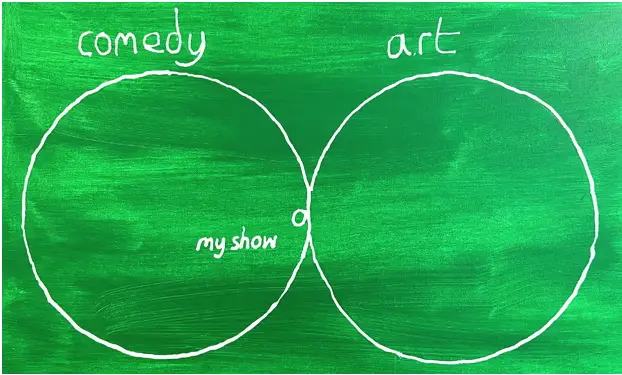Understanding and Crafting Powerful Comedy
Comedy is an art form that has been studied, analyzed, and refined for centuries. The structure of a well-crafted joke is much like a piece of music—carefully composed, structured, and performed to elicit a reaction. While some jokes appear effortless, the truth is that good comedy takes time, practice, and a deep understanding of what makes people laugh.
For those who appreciate humor or perform stand-up comedy, studying the mechanics of jokes is an essential practice. Whether in stand-up, film, television, or written form, comedy relies on sharp wording, timing, and delivery. This guide will explore the structure of strong jokes, the importance of studying great comedic lines, and how to develop a personal style in humor writing.
The Structure of a Strong Joke
Great jokes rarely emerge fully formed. They are refined through writing, testing, and adjusting based on audience reactions. Developing a joke involves understanding key elements such as timing, misdirection, word economy, and relatability.
Timing and Delivery
Timing is crucial in comedy. A well-placed pause or the speed of delivery can change how an audience reacts to a joke. A great comedian knows when to let a punchline land and when to move quickly to the next joke.
Misdirection
Many jokes rely on leading the audience in one direction and then surprising them with an unexpected twist. This element of surprise enhances laughter by playing on expectations.
Word Economy
Good jokes use precise language. Unnecessary words dilute the impact of the punchline, so great joke writers refine their material until only the essential words remain.
Relatability
Jokes often work best when they tap into shared experiences. Whether discussing relationships, work, or everyday frustrations, humor that feels personal often resonates the most.
Studying the Greats: Learning from Master Comedians
One of the best ways to improve as a comedian or humorist is to study jokes that have stood the test of time. By analyzing the work of well-established comedians, writers can understand what makes certain jokes work.
Many legendary comedians are known for their ability to craft concise, effective jokes. Some worth studying include:
- Rodney Dangerfield – Known for rapid-fire one-liners.
- Steven Wright – A master of deadpan, surreal humor.
- Mitch Hedberg – Famous for his clever and unconventional punchlines.
- Phyllis Diller – A pioneer in self-deprecating humor.
- Woody Allen – An expert in intellectual and observational comedy.
Reading joke collections or watching stand-up specials can provide insights into how successful comedians structure their material.
Compiling a List of Strong Jokes
A useful exercise for aspiring comedians is to compile a list of personally memorable jokes. Writing down and analyzing favorite lines helps develop an eye for structure, pacing, and word choice.
Why Keep a Joke List?
- It helps recognize strong joke patterns.
- It builds an understanding of personal comedic taste.
- It provides a reference for writing and structuring new material.
As with any craft, analyzing and breaking down existing work is a valuable step toward mastering joke writing.
Exercise: Start with Ten Jokes
While a full catalog of 101 jokes takes time to build, beginning with ten strong jokes is an effective way to train the mind. Writing them down and reflecting on why they work will develop a deeper understanding of comedy.
Questions to Consider:
- What made this joke stand out?
- How does the wording contribute to its effectiveness?
- Is the joke based on misdirection, wordplay, or relatability?
There are many sources for finding well-structured jokes, from joke books to classic comedy specials.
A Selection of Well-Crafted Jokes
Here is a selection of jokes from various comedians to illustrate different styles of humor:
- “Divorce teaches you things… like fractions.” – Buzz Nutley
- “I broke up with my girlfriend because I caught her lying… under another man.” – Doug Benson
- “I find that a duck’s opinion of me is greatly influenced by whether or not I have bread.” – Mitch Hedberg
- “They say that computers can’t think, but I have one that does. It thinks it’s broken.” – Gene Perret
- “If it wasn’t for pickpockets and frisking at airports, I’d have no sex life at all.” – Rodney Dangerfield
- “If her lips are on fire and she trembles in your arms, forget her. She’s got malaria.” – J. Kannon
- “I’m not a good cook. At Christmas my family got together and bought me a stove that flushes.” – Phyllis Diller
- “I became a father. There’s a lot to do with kids. I had to hold him, pat him on the back, and burp him. Luckily, I’ve had a lot of practice on my mom.” – David Letterman
Studying these jokes helps to see how different styles of humor play with language, expectations, and timing.
Developing Personal Joke Writing Skills
After compiling a list of favorite jokes, the next step is practicing joke writing. While inspiration can strike at any moment, setting aside time to actively write and refine jokes will lead to noticeable improvement.
Tips for Writing Jokes
- Write every day – The more jokes written, the better they will become.
- Test material – Perform jokes for friends, at open mics, or in writing workshops.
- Analyze audience reactions – If a joke doesn’t land, refine or adjust it.
- Experiment with different styles – Try wordplay, observational humor, or surreal jokes to see what fits best.
Ethics in Comedy: Respect for Original Material
One of the most important rules in comedy is to avoid using jokes that belong to other people. While it is valuable to study and analyze jokes from famous comedians, performing someone else’s material without permission is widely condemned in the industry.
Why Joke Theft is a Serious Issue
- Comedians spend years developing their material.
- Originality is what sets great comedians apart.
- Using stolen jokes damages credibility and reputation.
Instead of copying, focus on developing a personal comedic voice. A strong individual perspective makes comedy unique and compelling.
Final Thoughts
Writing and performing great jokes takes dedication, practice, and a willingness to study the craft. By analyzing joke structure, compiling a list of well-written jokes, and actively writing original material, anyone can improve their ability to craft strong humor.
The best comedians continuously refine their material, test new ideas, and stay committed to the writing process. Whether for stand-up, writing, or simply improving comedic skills, studying and practicing joke writing is an invaluable tool for anyone who loves comedy.
FAQs
1) Why is joke writing so difficult?
Jokes require precise wording, timing, and structure. Unlike casual humor, well-crafted jokes are designed to consistently elicit laughter, which takes practice and refinement.
2) What makes a joke effective?
A good joke often involves a surprise element, clear wording, and relatability. Effective jokes also take advantage of strong timing and misdirection.
3) How can I improve my joke-writing skills?
Study jokes from well-known comedians, write regularly, and test material in front of an audience. Analyzing what works and what doesn’t will help sharpen skills.
4) Is it okay to use jokes from other comedians?
No. Using someone else’s material without permission is considered stealing in the comedy world. Instead, focus on developing original jokes.
5) How long does it take to develop a strong joke?
Some jokes come together quickly, while others require months of refinement. The best jokes are tested and adjusted over time to ensure they work consistently across different audiences.

